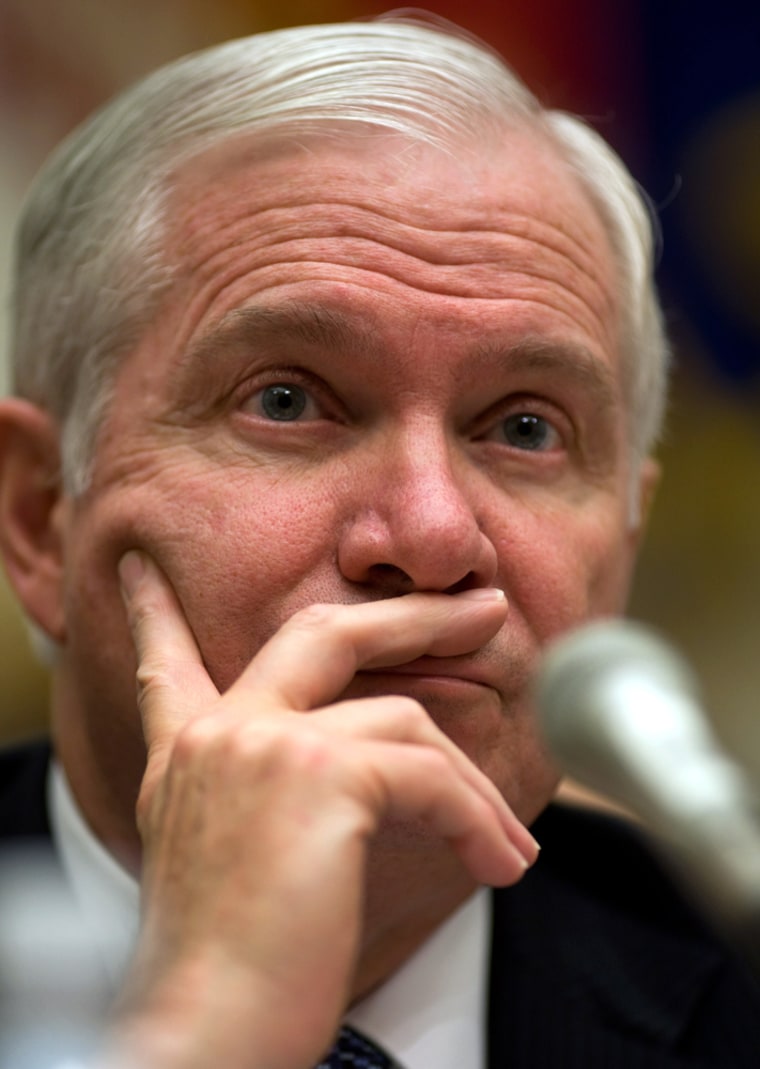Last week, Secretary of Defense Robert Gates announced he hoped American forces in Iraq could be reduced to about 100,000 within the next 12 months. Careful to add that everything depends on improvement in Iraq’s security forces, he tried to avoid a commitment he can’t keep, but on the surface, this looks like very good news.
However, we should be careful not to misconstrue what this implies for Iraq. The security situation has improved for a number of reasons, and few of them will be lasting over the long term.
The troop “surge” has added several tens of thousands of American forces, and, more importantly, has put a U.S. presence into areas previously difficult to enter and has pacified them. Anbar Province is a good case in point. Long the most hideously violent place in Iraq, it is now among the most peaceful. Americans forces, assisted by Iraqis, moved into the province in substantial numbers, killed or captured many enemy troops, and drove the rest out of the area. The U.S. pursued the same tactics in many neighborhoods in Baghdad with the same positive result.
By contrast, at the end of the week in Diyala Province — where significantly fewer U.S. troops had been — the American command reported that it had found a torture chamber that had been used by al-Qaida, and there was ample evidence that many local people had been systematically brutalized and maimed and then slaughtered. The difference between Diyala and Anbar is striking, and one of the reasons is that American forces were not in Diyala in adequate strength, so the local population was terrorized.
Tribal leaders, long the principal agents of stability even under Saddam Hussein, have been powerless to protect their people. The fact that the torture chamber has been exposed is a ray of hope because it was information from locals that generated the intelligence, but it will take the kind of effort we made in Anbar to secure the local Iraqi leaders’ control over their people and keep the enemy away. It’s possible but unlikely.
Afghanistan, too
It is unfortunate that we don’t have the assets available to generate Anbar-style success everywhere in Iraq. There are difficulties in the north that need attention, too. And this is in an environment in which we need more troops in Afghanistan as well. A few weeks ago, Gates reversed a decision to reduce American forces in Iraq so they could be sent to Afghanistan, where enemy forces persist in degrading security, particularly in and around Kandahar.
The presence of NATO forces in Afghanistan has done nothing to improve the situation, and indeed, it seems that giving our reluctant allies any responsibility has produced no measurable success. We appear to be in the undesirable position of having to choose one campaign over another, but we may actually be short-changing both.
The U.S. is relatively lucky that the majority of forces loyal to Moqtada al-Sadr are keeping a low profile at the moment. The Shiites know very well that time is on the side of the patient, and that Americans will not be in Iraq forever. The calmer Iraq looks, the faster Americans will leave, and that works to Sadr’s and Iran’s advantage.
So, when the new president is inaugurated in a little more than a year, the U.S. is liable to have a much smaller force in Iraq, a slightly larger but still inadequate force in Afghanistan, and not much national will to improve either.
This is not the way to fight our enemies.
Jack Jacobs is a military analyst and a retired U.S. Army colonel. He earned the Medal of Honor for exceptional heroism on the battlefields of Vietnam and also has three Bronze Stars and two Silver Stars.
